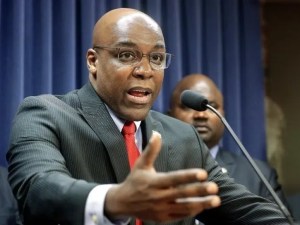CHICAGO — With the nation’s eye focused on Chicago, Mayor Emmanuel has been forced to make some changes. After receiving help from former Chief Administrator Sharon Fairley, COPA — Civilian Office of Police Accountability — has officially launched.
Although COPA is off the ground, there are many residents that still don’t fully understand how to receive justice. At last months Chicago Police Board meeting, local resident Rafael Vargas and his wife cried out to the board, “We can’t let our daughter’s dreams be taken away. We wanted justice.”
These type of complaints at Chicago Police Board meetings have become so commonplace that the members of the police board treat them like “business as usual.” Many community members are confused and in the dark. They don’t understand that the police board’s role is to remain impartial and hand down decisions in cases of serious police misconduct.
President of the board, Lori Lightfoot, continues to remind residents that the Chicago Police Board is not the place to lodge a formal complaint. “All complaints regarding police misconduct must be referred to IPRA,” she said to an emotionally charged crowd at Septembers police board meeting. Although IPRA is now COPA, the message remains the same — complaints to the police board are less effective than making a formal complaint with COPA.
While the efficacy of using police board meetings as a platform to air grievances can be debated, with COPA there is now a clear and simple process for lodging complaints. Perhaps the public’s mistrust and confusion lie in the fact that Chicago’s reform agencies have a convoluted and troubling history.
After multiple failed attempts at police accountability, the Office of Professional Standards (OPS) was responsible for policing Chicago’s police from 1974 until 2007. The only problem was that the agency had almost no checks and balances. Many of the investigators were police officers, investigating Chicago officers — hardly an accountability system.
In 2007, under pressure from various outlets, Mayor Daley created IPRA, or the Individual Police Review Authority. The only problem with IPRA, was that there was almost zero turnover. It was the same organization as OPS with a fancy new name.
Even city officials acknowledge that IPRA was essentially no different from its failed predecessors. Mia Sissac, Public Information Officer for COPA, acknowledged that, “Employees were basically told to come back Monday and change their answering machines from OPS to IPRA.”
Sissac, recognizes that creating a new police oversight committee from scratch is no easy task. “We still have the dark cloud of IPRA over us, so we do have an uphill battle,” she said in a September interview with the Chicago Justice Project.
For a long time, Chicagoans’ complaints fell upon deaf ears, with cases being unresolved even years after the initial complaint was filed. Then came the Laquan McDonald shooting of 2015, and Chicago policing was rocked to its very core.
Under enormous pressure from the federal government, the DOJ launched a full scale investigation into the Chicago Police Department. Under advisement from Sharon Fairley, Mayor Emmanuel and the Chicago City Council voted to establish COPA.
Sissac had nothing but praise for the new agency adding, “we are confident in the work we do, and we just want people to give us a chance and let us prove ourselves.” She has been leading campaigns to get the word out about COPA, posting signs around the city at popular bus and train stations.
Max Caproni, the Executive Director of the Chicago Police Board, said that so far COPA has had “a very good working relationship” with the board. He went on to say that COPA was well positioned to function as a new agency.
A key element of COPA’s potential success, lies in the new budget. Unlike its predecessor IPRA, COPA now has a fixed budget. Sissac recognized the importance of the new budget, adding, “No matter what, we will always be 1% of CPD’s budget. So if their budget grows, our budget grows too.”
As of September 15th, COPA is now taking complaints or compliments of Chicago’s police officers 24/7. The hotline number is (312) 743-COPA, and if a caller makes a complaint after hours, their call will be returned that next morning.
COPA wants to remind Chicagoans, that even if an individual can not remember the name of the police officer, that is OK. Even with very limited information, COPA investigators shouldn’t have much of a problem identifying the Officer involved.
With a surprising recent announcement to run for Attorney General, Sharon Fairley’s time at COPA has come to an abrupt end after less than a month. As the leader primarily responsible for creating COPA, it is too soon to tell what kind of impact Fairley’s departure will have on the infant agency. “While there is still more work to do, the new agency stands at the ready to combat police misconduct while also rebuilding public trust,” Fairley said on Tuesday.
Although it may be positioned for success — whether or not the agency can work will ultimately depend on the relationship COPA establishes with Chicago’s weary residents. While there may be reservations, the city seems to be holding their breath with hopeful optimism.



